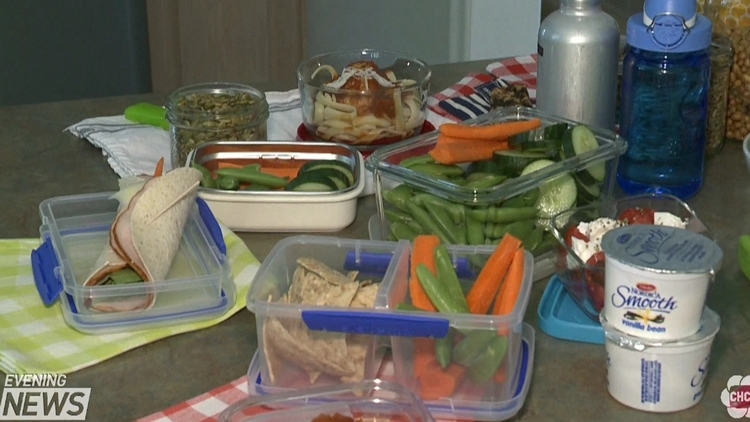
School nutrition programs in Niagara are struggling to keep up with increased demand and the high cost of groceries.
One not-for-profit has had to scale back and put schools on a waitlist until resources become available.
“The Ontario government gives $34 million across the entire province. The high level math equals to about 10 cents per student, per day,” says Jessica Simpson, program manager at Niagara Nutrition Partners.
Niagara Nutrition Partners also uses money from the federal government. It works with area schools — elementary and high school — to provide what they call “sustainable nutrition programs”.
It costs the organization $2.50 per student per meal, and they aim to provide each student with three meals a day. But with the rising cost of groceries they are being forced to scale back.
“We have numbers that shows that it is going up, and it’s getting more expensive,” says Maud Rostaing, principal at St. Marguerite Bourgeoys Catholic Elementary in St. Catharines.
She says because funding is limited they want to be careful, but also don’t want to give less to the students who need it.
“We also see that some kids have less in their lunch boxes too, because of that it probably has the same effect,” adds Rostaing.
The Niagara Catholic District School Board and the District School Board of Niagara (DSBN) agree — rising food costs affecting nutrition programs also affects learning.
“We know that there is a direct relation between food scarcity and student success. Research shows that when a child is hungry, staying focused is a challenge. This impairs their learning and their social/emotional well-being,” says NCDSB Communication and Community Engagement Officer Jennifer Pellegrini.
“Rising food costs have placed pressure on nutrition programs across Niagara and the province. These programs are essential, with thousands of DSBN students accessing them daily,” says Public Relations Manager Milica Petkovic.
“We firmly believe that every student, regardless of where they learn, deserves the same opportunity to access nutritious food,” Petkovic adds.
The scaling back of nutrition programs leaves one parent CHCH spoke with worried.
Jordan Mammoliti is a Niagara mother of elementary school-aged children and says a lot of kids would suffer from stress-induced hunger.
“I also think that students would suffer from not learning about proper meals and healthy snacks and all of the food groups that are included,” says Mammoliti.
Niagara Nutrition Partners is funded in part by the Ontario Ministry of Children, Community and Social Services (MCCSS) and administered regionally by Haldimand-Norfolk R.E.A.C.H.
A MCCSS spokesperson said that Ontario is investing $108.5 million over three years, including $18.5 million this school year through the existing programs of the National School Food Program, Ontario’s Student Nutrition Program and First Nations Student Nutrition Program.
The federal government partnered with Ontario student nutrition programs in November of last year.
READ MORE: Three Burlington residents to be presented with keys to the city
